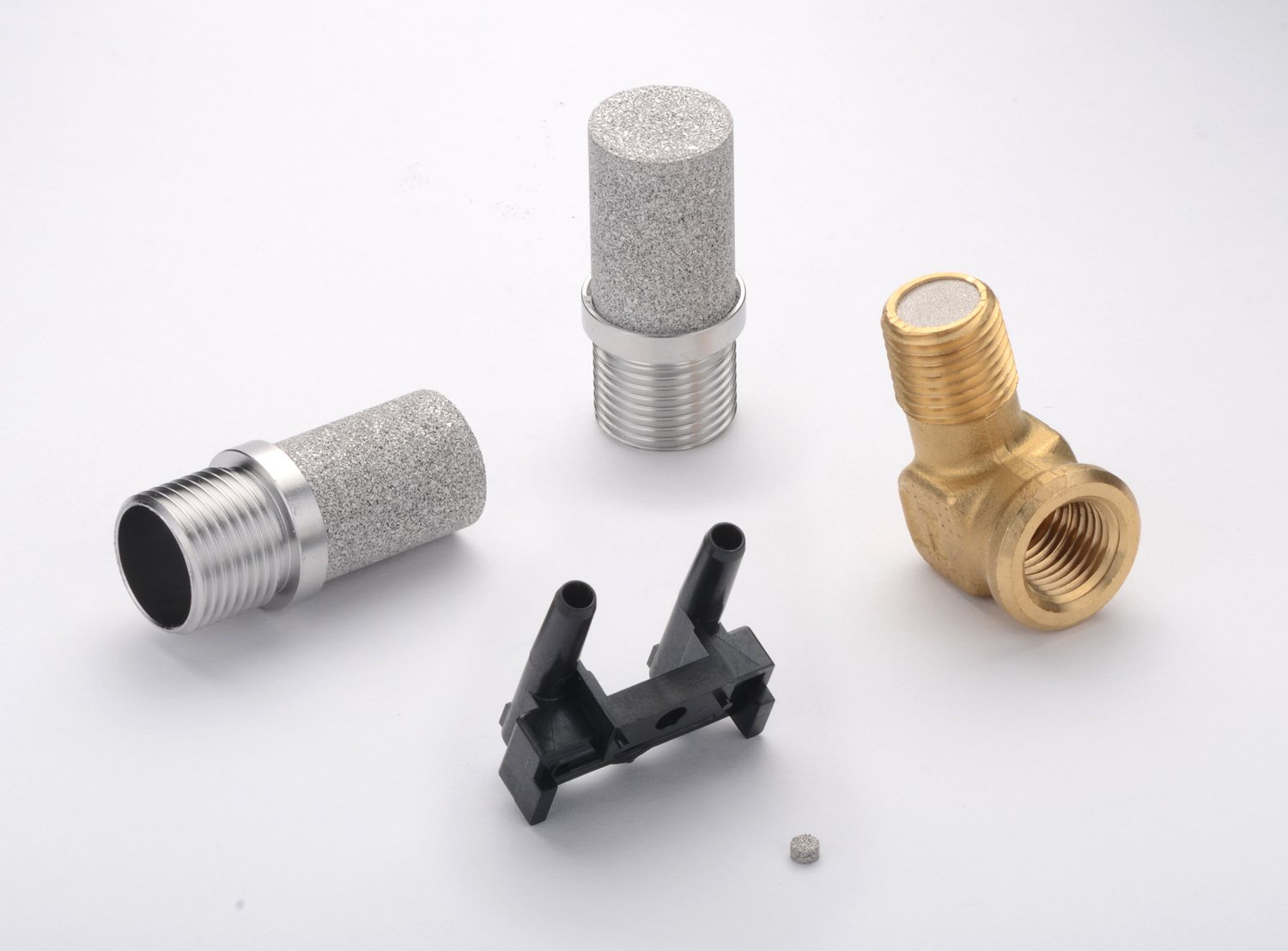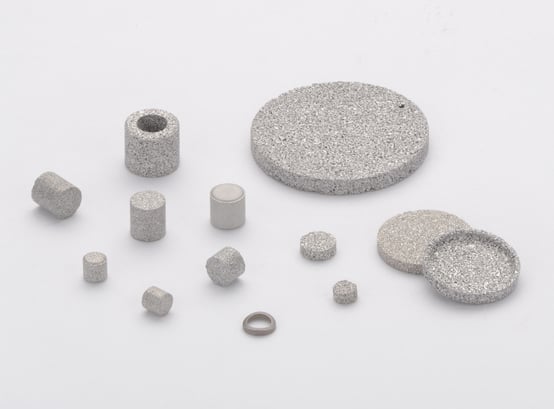Porous & Sinter Metal Filters Solutions
DSB Technologies engineers a wide range of sintered metal filters and porous metal components and designs components with application-specific porosity levels. Materials are available for high volume stainless steel metal applications and applications requiring specialty alloys.
Contact our team to review designs and request a quote.
Minimum Order Quantity Notice: 25,000 Pieces
Minimum Order Quantity Notice: 25,000 Pieces
Please note that our minimum order quantity for sinter metal filters and porous components is 25,000 pieces.
Porous Metal Components
DSB Technologies supplies porous metal products as part of an assembly. Here's how it works:
- Sintering process bonds to a fitting
- Press fit into a fitting
- Constant filter flow for device

Sintered Metal Filters
DSB Technologies supplies sintered metal filters in a variety of shapes and sizes, depending on the application's specific needs.
- Utilize existing off-the-shelf parts
- Develop custom filter design specific to an application

Sinter Metal Filters & Porous Product FAQ
What metals are porous?
What metals are porous?
Most technical metals and their alloys have been created with porous structures, including iron, aluminum, nickel, copper, magnesium, titanium, zinc, lead, silver, gold, platinum, tantalum and tungsten.
What makes porous metals unique?
What makes porous metals unique?
Porous metals find diverse applications across various industries due to their unique combination of properties, such as high strength, lightweight, corrosion resistance, and permeability.
What is the difference between porous and non porous metals?
What is the difference between porous and non porous metals?
Porous metals have interconnected void spaces within their structure, while non-porous metals do not have these void spaces. Here's a brief comparison:
Porous Metals:
Structure: Porous metals have a sponge-like structure with interconnected voids or pores throughout the material.
Properties: They typically exhibit high porosity, which can vary from low to high depending on the manufacturing process. This porosity gives them unique properties such as high surface area, lightweight, and good permeability.
Applications: Porous metals find applications in various fields such as filtration, catalysis, biomedical implants, and acoustic damping.
Non-Porous Metals:
Structure: Non-porous metals have a dense, solid structure without any interconnected voids or pores.
Properties: They usually have high mechanical strength, good conductivity, and are impermeable to gas and liquids.
Applications: Non-porous metals are commonly used in structural applications, electrical and thermal conductivity applications, as well as in industries like aerospace, automotive, and electronics.
What are sintered metal filters, and how are they different from other types of filters?
What are sintered metal filters, and how are they different from other types of filters?
Sintered metal filters are porous components made from metal powders that are compressed and heated to form a solid structure with interconnected pores. These filters are widely used for various filtration applications across industries due to their durability, temperature resistance, chemical compatibility, and customizable pore size distribution.
How do sintered metal filters achieve pore size control, and why is this important?
How do sintered metal filters achieve pore size control, and why is this important?
Sintered metal filters achieve pore size control through the precise selection and bonding of metal powder particles during the sintering process. By carefully choosing the particle size and distribution, the resulting pores can be controlled to meet specific filtration requirements. This control is crucial because it ensures the filter can effectively separate contaminants from fluids or gases, maintaining the desired flow rates and protecting downstream equipment from damage or clogging.
Can sintered metal filters be customized to meet specific filtration requirements?
Can sintered metal filters be customized to meet specific filtration requirements?
Yes, sintered metal filters can be customized to meet specific filtration requirements, offering versatility and flexibility in design and performance. Here's how sintered metal filters can be customized: pore size, pore distribution, thickness and density, shape and dimensions, material composition, surface finish and coatings, support structures
What is the sintering process for porous metal components?
What is the sintering process for porous metal components?
The process involves bonding metal particles under heat to create a porous structure.
How are porous metal components integrated into assemblies?
How are porous metal components integrated into assemblies?
They can be press-fitted or bonded into fittings for constant filter flow.
What materials are used for sintered metal filters?
What materials are used for sintered metal filters?
Common materials include stainless steel, bronze, nickel, and specialty alloys.
What applications use sintered metal filters?
What applications use sintered metal filters?
Applications include fluid and gas filtration, flame arrestors, and diffusers.
How are porous metal components integrated into assemblies?
How are porous metal components integrated into assemblies?
They can be press-fitted or bonded into fittings, ensuring consistent filter flow and structural integrity.
How are porous metal components produced?
How are porous metal components produced?
They are produced through a sintering process that bonds metal particles under heat to create a porous structure.


